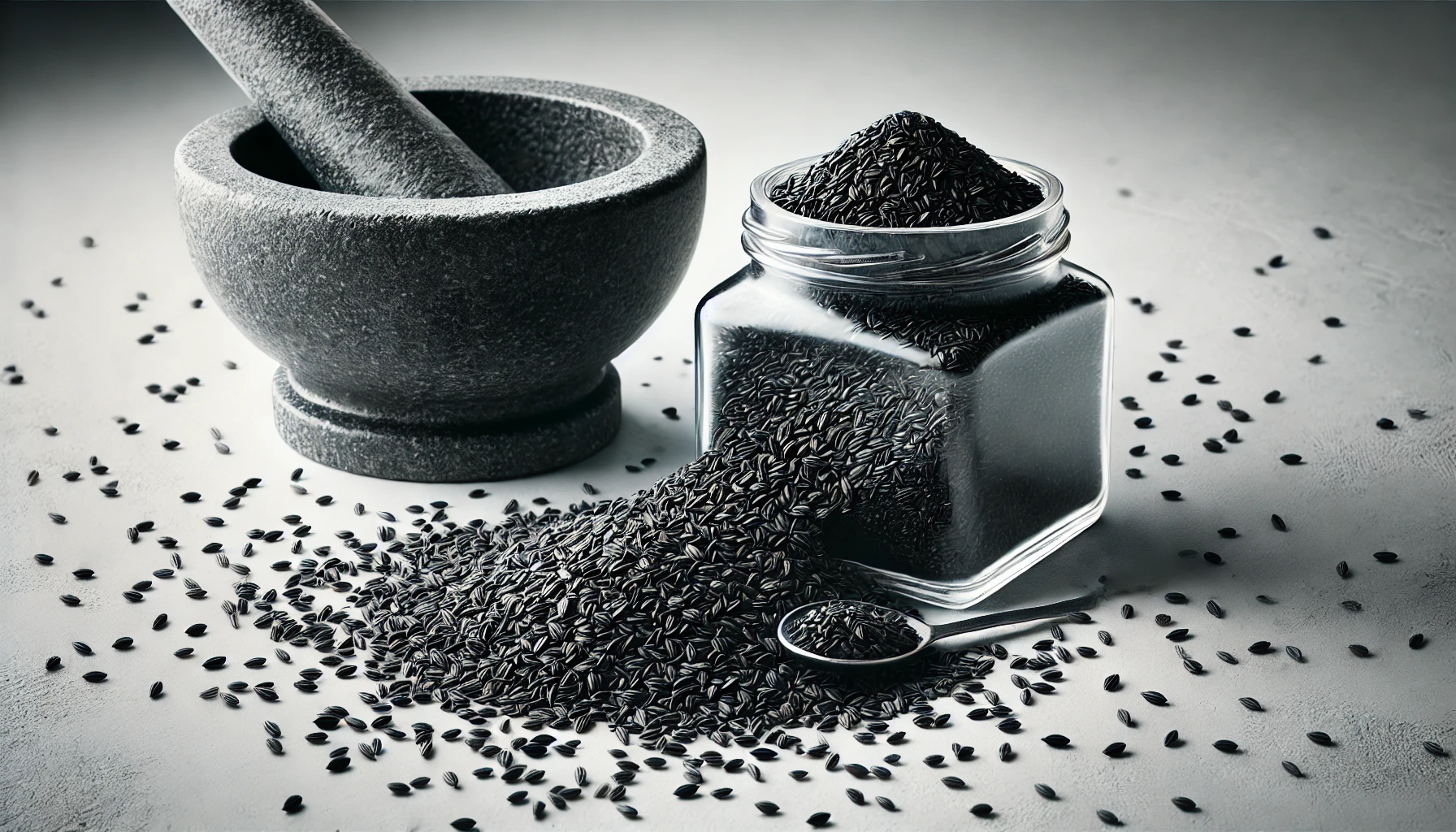Check out this answer from Consensus:
Black seeds (Nigella sativa) are a nutritionally rich and pharmacologically potent plant with a wide range of health benefits. From managing chronic diseases to supporting respiratory and immune health, black seeds offer a natural and effective remedy for various ailments. Further research and clinical trials are warranted to fully understand their therapeutic potential and safety profile.
By incorporating black seeds into your diet or as a supplement, you can harness their numerous health benefits and improve your overall well-being.
Black seeds, also known as Nigella sativa, have been used for centuries in traditional medicine across various cultures. This small flowering plant from the Ranunculaceae family is native to southwest Asia and has garnered significant attention for its potential health benefits. This article explores the nutritional composition, pharmacological properties, and therapeutic uses of black seeds, supported by scientific research.
Nutritional Composition
Black seeds are nutritionally rich, containing essential fatty acids, proteins, carbohydrates, and a variety of minerals. The seeds are composed of approximately 21% crude proteins, 39% crude fat, and 25% carbohydrates. They also contain significant amounts of minerals such as calcium, potassium, phosphorus, magnesium, sodium, iron, zinc, and copper4. The major fatty acids in black seed oil include linoleic acid (57.71%) and oleic acid (24.46%), which are essential for maintaining good health4.
Pharmacological Properties
Anti-inflammatory and Antioxidant Effects
Black seeds possess potent anti-inflammatory and antioxidant properties, primarily attributed to thymoquinone, the most abundant constituent of its volatile oil. These properties make black seeds effective in managing conditions like rheumatoid arthritis, asthma, and other inflammatory diseases1 2 5.
Antimicrobial and Antiviral Activities
The seeds and their oil exhibit significant antimicrobial and antiviral activities. Studies have shown that black seeds can combat various bacterial, viral, and fungal infections, making them a valuable natural remedy for infectious diseases2 3 9.
Metabolic and Cardiovascular Benefits
Black seeds have been found to have hypoglycemic, hypolipidemic, and antihypertensive effects. These properties are beneficial in managing diabetes, dyslipidemia, and hypertension, thereby reducing the risk of cardiovascular diseases3 5 7.
Neuroprotective and Gastroprotective Effects
Research indicates that black seeds have neuroprotective and gastroprotective properties. They can help in managing neurological disorders and protecting the gastrointestinal tract from various ailments5 8.
Therapeutic Uses
Treatment of Chronic Diseases
Black seeds are used in the treatment of several chronic diseases, including diabetes, metabolic syndrome, and various types of cancer. Their anti-cancer properties are particularly noteworthy, as they can inhibit the growth of cancer cells and induce apoptosis1 2 5.
Respiratory and Immune System Support
The seeds are also beneficial for respiratory health, providing relief from conditions like asthma and allergic rhinitis. Additionally, they have immune-stimulatory effects, enhancing the body’s ability to fight off infections and diseases5 7.
Potential in Managing Long COVID
Recent studies suggest that black seeds may be effective in managing long COVID symptoms due to their anti-inflammatory, antioxidant, and immunomodulatory properties. They can be used as adjunctive therapy to prevent further complications and hospitalization in patients recovering from COVID-1910.
Safety and Toxicity
While black seeds are generally considered safe, some studies have reported mild toxicity at very high doses. However, the majority of research indicates that they can be safely used in moderate amounts without significant adverse effects7 9.
